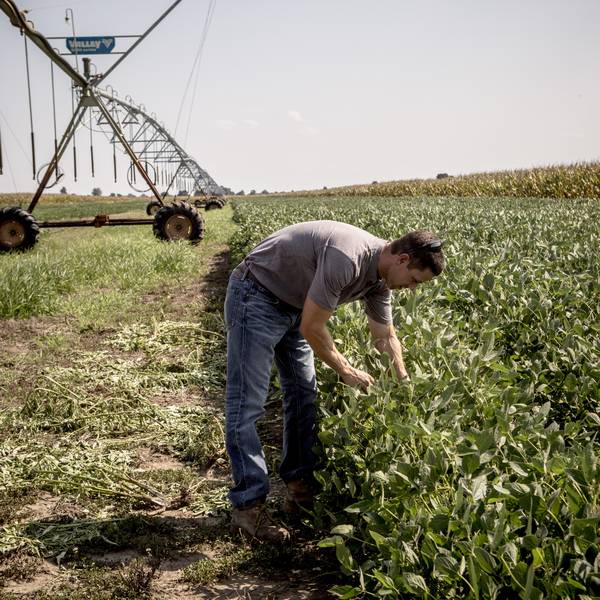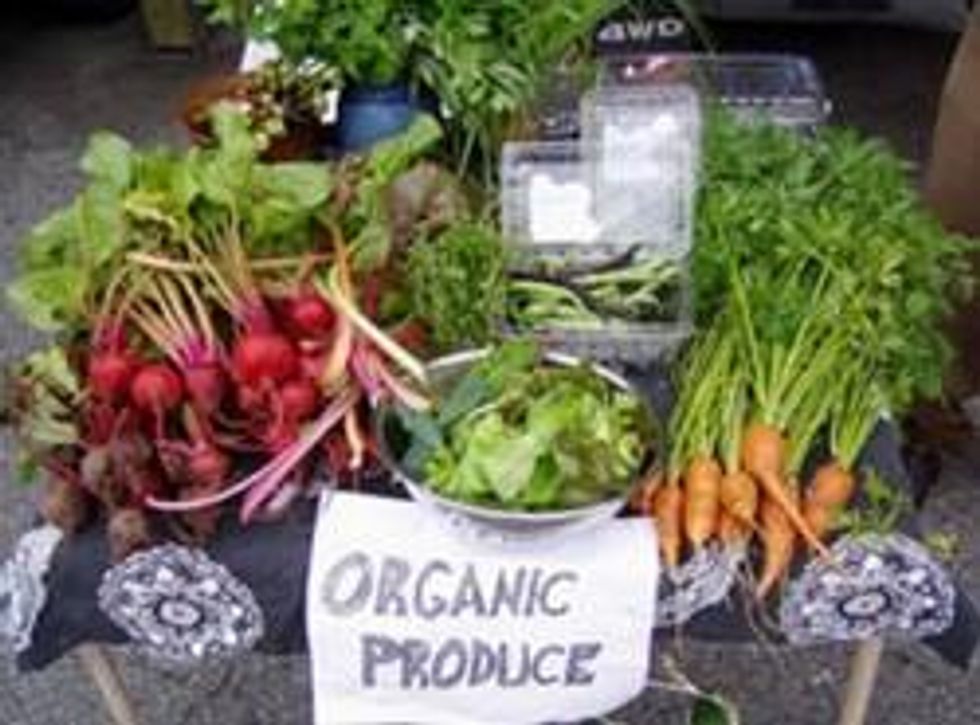I first heard about a new Stanford "study" downplaying the value of organics when this blog headline cried out from my inbox: "Expensive organic food isn't healthier and no safer than produce grown with pesticides, finds biggest study of its kind."
What?
Does the actual study say this?
No, but authors of the
study -- "Are Organic Foods Safer or Healthier Than Conventional Alternatives? A Systematic Review" -- surely are responsible for its misinterpretation and more. Their study actually reports that "Consumption of organic foods may reduce exposure to pesticide residues and antibiotic-resistant bacteria."
The authors' tentative wording -- "may reduce" -- belies their own data: The report's opening statement says the tested organic produce carried a 30 percent lower risk of exposure to pesticide residues. And, the report itself also says that "detectable pesticide residues were found in 7% of organic produce samples...and 38% of conventional produce samples." Isn't that's a greater than 80% exposure reduction?
In any case, the Stanford report's unorthodox measure "makes little practical or clinical sense," notes Charles Benbrook -- formerly Executive Director, Board on Agriculture of the National Academy of Sciences: What people "should be concerned about [is]... not just the number of [pesticide] residues they are exposed to" but the "health risk they face." Benbrook notes "a 94% reduction in health risk" from pesticides when eating organic foods.
Assessing pesticide-driven health risks weighs the toxicity of the particular pesticide. For example the widely-used pesticide atrazine, banned in Europe, is known to be "a risk factor in endocrine disruption in wildlife and reproductive cancers in laboratory rodents and humans."
"Very few studies" included by the Stanford researchers, notes Benbrook, "are designed or conducted in a way that could isolate the impact or contribution of a switch to organic food from the many other factors that influence a given individual's health." They "would be very expensive, and to date, none have been carried out in the U.S." [emphasis added].
In other words, simple prudence should have prevented these scientists from using "evidence" not designed to capture what they wanted to know.
Moreover, buried in the Stanford study is this all-critical fact: It includes no long-term studies of people consuming organic compared to chemically produced food: The studies included ranged from just two days to two years. Yet, it is well established that chemical exposure often takes decades to show up, for example, in cancer or neurological disorders.
Consider these studies not included: The New York Times notes three 2011 studies by scientists at Columbia University, the University of California, Berkeley, and Mount Sinai Hospital in Manhattan that studied pregnant women exposed to higher amounts of an organophosphate pesticide. Once their children reached elementary school they "had, on average, I.Q.'s several points lower than those of their peers."
Thus, it is reprehensible for the authors of this overview to even leave open to possible interpretation that their compilation of short-term studies can determine anything about the human-health impact of pesticides.
What also disturbs me is that neither in their journal article nor in media interviews do the Stanford authors suggest that concern about "safer and healthier" might extend beyond consumers to the people who grow our food. They have health concerns, too!
Many choose organic to decrease chemicals in food production because of the horrific consequences farm workers and farmers suffer from pesticide exposure. U.S. farming communities are shown to be afflicted with, for example, higher rates of: "leukemia, non-Hodgkin lymphoma, multiple myeloma, and soft tissue sarcoma" -- in addition to skin, lip, stomach, brain and prostate cancers," reports the National Cancer Institute. And, at a global level, "an estimated 3 million acute pesticide poisonings occur worldwide each year," reports the World Health Organization. Another health hazard of pesticides, not hinted at in the report, comes from water contamination by pesticides. They have made the water supply for 4.3 million Americans unsafe for drinking.
Finally, are organic foods more nutritious?
In their report, Crystal Smith-Spangler, MD, and co-authors say only that "published literature lacks strong evidence that organic foods are significantly more nutritious than conventional foods." Yet, the most comprehensive meta-analysis comparing organic and non-organic, led by scientist Kirsten Brandt, a Scientist at the Human Nutrition Research Center at the UK's Newcastle University found organic fruits and vegetables, to have on "average 12% higher nutrient levels."
Bottom line for me? What we do know is that the rates of critical illnesses, many food-related --from allergies to Crohn's Disease -- are spiking and no one knows why. What we do know is that pesticide poisoning is real and lethal -- and not just for humans. In such a world is it not the height of irresponsibility to downplay the risks of exposure to known toxins?
Rachel Carson would be crying. Or, I hope, shouting until -- finally -- we all listen. "Simple precaution! Is that not commonsense?"




